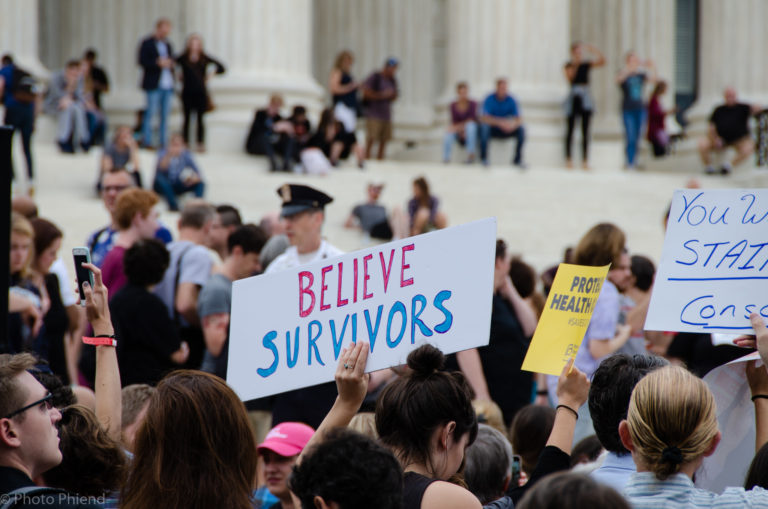How Much Will Closing the ‘Boyfriend Loophole’ Reduce Gun Violence Against Women in the United States and Philadelphia Alone?
As of November 2022, gun violence has killed almost 40,000 people, including at least 604 mass shootings in the United States alone. A significant portion of perpetrators of gun violence or mass shootings, the majority of them men, have one thing in common: domestic violence. Most U.S. red flag laws, which order the removal of firearms from persons who are considered a threat, only apply to those who are married to, living with, or have children with the victim in cases of domestic violence. With the closure of the boyfriend loophole, gun violence cases related to domestic violence will be significantly reduced throughout the cities and counties in the United States. However, in Philadelphia, the city’s record-high number of gun violence cases in 2021 will only successfully be reduced if the Philadelphia Police Department is equipped with the time and resources to implement the bill.
Nationwide cases of gun violence will significantly drop with the closure of the boyfriend loophole due to the high number of cases committed by men that involve domestic violence. As domestic violence continues to spike, these laws notably fail to cover the many gray areas of a relationship that exist today. The process of dating is more lengthy than it was in the past, and it often takes longer for a couple to move in together in 2022 than it has in the past. Previously, only 31 states had instituted policies to prevent domestic abusers from having access to guns, but only 19 closed the boyfriend loophole. With many men often avoiding the consequences of these red flag laws and the remaining 19 states having no domestic abuse policies, gun violence numbers have remained high. “In an average month in the U.S., more than 50 women are fatally shot by their partners… A 2018 UPenn study found that some 4.5 million [American] women have been threatened with a gun by an intimate partner and that nearly 1 million have been shot or shot at.” In addition to the domestic violence cases that involve firearms, men with a history of domestic violence have been shown to be linked to unrelated shootings. Out of 749 mass shootings over the past six years, about 60% were either domestic violence attacks or committed by men with histories of domestic violence. This correlation is typically underestimated;and with the closure of the boyfriend loophole, gun violence numbers will also decrease due to its effect on mass shooting prevention.
With gun violence murders still on the rise in 2022, the boyfriend loophole will also effectively decrease cases of domestic violence homicides in Philadelphia. However, its effectiveness will require strong enforcement from the Philadelphia Police Department. As the pandemic spiked the number of gun violence cases throughout Philadelphia, domestic violence homicides rose by 240% in 2021. The state of Pennsylvania has attempted to combat this issue by passing the Pennsylvania Protection from Abuse Act (PFAA), which orders people known as potential threats of domestic violence to relinquish their guns. However, Act 79 that included improvements to the PFAA took effect in 2019, but still did not close the boyfriend loophole. The bill states that its consequences are restricted to “a person in any of the following relationships:
(i) the current or former spouse, parent or guardian of the victim;
(ii) a person with whom the victim shares a child in common;
(iii) a person who cohabits with or has cohabited with the victim as a spouse, parent or guardian; or
(iv) a person similarly situated to a spouse, parent or guardian of the victim;
then the relationship need not be an element of the offense to meet the requirements of this paragraph.” Even with the consequences for some perpetrators within this act, it is reported that its enforcement is very poor specifically in Philadelphia compared to other counties. In comparison, Philadelphia has recovered only 13% of the guns ordered to be relinquished under Act 79 compared to 49% in Bucks County and 55% in Montgomery County. For Philadelphia to successfully lower the number of gun-violence cases occurring that are connected to domestic violence, the Philadelphia Police Department must be consistent in enforcing the provisions of the newest bill passed by Congress. As the city currently deals with staffing shortages and other inhibiting factors, quickly removing guns from domestic abusers could prove to be a challenging hurdle, and only time and the city’s priorities will tell.












Josie • Nov 8, 2023 at 1:51 PM
This is so sad but so true. I really hope we end up solving it. I think it was really brave to write this paragraph.
Thank you so much for sharing your thoughts!
– Josie McCann
5th Grade Tr. Dave
emily • Nov 8, 2023 at 1:49 PM
why are men mean to women! it is super rude and mean!!!!!!!
emily • Nov 8, 2023 at 1:47 PM
i never knew about this. this is super bad. SUPER BAD.
– Emily E 5th grade